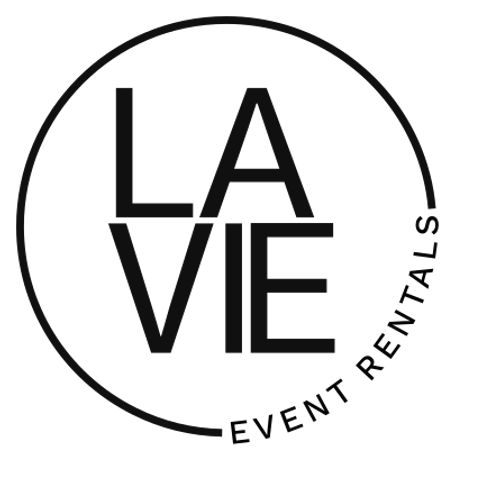What You Need to Know About Event Planning
- La Vie Event Rentals
- Jul 31, 2025
- 4 min read
Event planning is an exciting yet complex process that requires attention to detail, creativity, and strong organizational skills. Whether you are organizing a small gathering or a large corporate event, understanding the key elements of event planning can help you create a memorable and successful occasion. This guide will walk you through the essential steps and tips to make your event planning journey smooth and effective.
Understanding the Basics of Event Planning
Event planning involves coordinating all aspects of an event from start to finish. This includes setting objectives, budgeting, selecting venues, arranging logistics, and managing vendors. The goal is to ensure that every detail aligns with the event’s purpose and meets the expectations of attendees.
To begin, clearly define the purpose of your event. Is it a wedding, a conference, a fundraiser, or a product launch? Knowing the type of event will guide your decisions on venue, theme, and activities. Next, establish a realistic budget that covers all expenses such as venue rental, catering, entertainment, and decorations.
A well-structured timeline is crucial. Break down the planning process into manageable phases with deadlines for each task. This helps prevent last-minute stress and ensures that nothing is overlooked.
Key Elements to Consider:
Venue selection: Choose a location that fits the event size and style.
Guest list: Determine the number of attendees and send invitations early.
Vendors: Book reliable caterers, decorators, and entertainment.
Logistics: Plan transportation, parking, and accommodation if needed.
Contingency plans: Prepare for unexpected issues like bad weather or technical problems.

Essential Tips for Successful Event Planning
Effective event planning requires a combination of creativity and practical management. Here are some actionable recommendations to help you stay on track:
Start Early: Begin planning months in advance to secure the best venues and vendors.
Communicate Clearly: Keep all stakeholders informed through regular updates.
Use Technology: Utilize event management software to track tasks and registrations.
Focus on Experience: Think about what will make the event enjoyable and memorable for guests.
Stay Flexible: Be ready to adapt plans as needed without losing sight of your goals.
Budget management is another critical area. Track all expenses carefully and look for cost-saving opportunities without compromising quality. For example, renting equipment or furniture can be more economical than buying, especially for one-time events.
If you are organizing an event in Texas, consider partnering with local providers for event rentals round rock to access quality supplies and support the community.

Choosing the Right Venue and Vendors
Selecting the perfect venue sets the tone for your event. When evaluating options, consider the following:
Capacity: Ensure the space can comfortably accommodate your guest list.
Accessibility: Check for convenient parking, public transport, and facilities for people with disabilities.
Ambiance: The venue’s style should match the event’s theme and mood.
Amenities: Look for essential features like audio-visual equipment, kitchen access, and Wi-Fi.
Once the venue is secured, focus on vendors who will bring your event to life. Reliable caterers, decorators, and entertainment providers are vital. Always ask for references and review portfolios or samples of their work.
Negotiating contracts carefully is important. Clarify payment terms, cancellation policies, and what services are included. This helps avoid misunderstandings and ensures everyone is on the same page.
Vendor Coordination Tips:
Schedule meetings or calls to discuss expectations.
Share a detailed event timeline with all vendors.
Assign a point person to handle vendor communication on the event day.

Managing Event Day Operations
The day of the event is when all your planning comes together. Effective management during this phase is crucial to handle any issues and keep the event running smoothly.
Start early by arriving at the venue to oversee setup. Check that all equipment, decorations, and seating arrangements are in place. Coordinate with vendors to confirm their arrival times and responsibilities.
During the event, maintain clear communication with your team. Use walkie-talkies or mobile phones to stay connected. Monitor the schedule closely to ensure activities start and end on time.
Be prepared to troubleshoot problems quickly. Whether it’s a technical glitch or a last-minute change in the program, staying calm and solution-focused will help maintain a positive atmosphere.
After the event, conduct a debrief with your team and vendors. Discuss what went well and identify areas for improvement. This feedback is valuable for planning future events.
Enhancing Your Event with Rentals and Decor
One of the easiest ways to elevate your event is through thoughtful rentals and decor. Renting items like tables, chairs, linens, lighting, and tents can transform a simple space into an elegant venue.
When selecting rentals, consider the style and color scheme of your event. Coordinated decor creates a cohesive look that impresses guests. For example, rustic wooden tables paired with soft fairy lights can create a warm, inviting atmosphere for an outdoor wedding.
Working with a trusted rental company can simplify this process. They often provide delivery, setup, and pickup services, reducing your workload. If you are planning an event in Texas, exploring options for event rentals round rock can offer a wide range of quality products tailored to your needs.
Decor Ideas to Consider:
Themed centerpieces that reflect the event’s purpose.
Ambient lighting such as candles, lanterns, or string lights.
Customized signage for directions and branding.
Comfortable lounge areas with stylish furniture.
By paying attention to these details, you create an environment that enhances the guest experience and leaves a lasting impression.
Event planning is a rewarding endeavor that combines creativity with organization. By understanding the fundamentals, choosing the right partners, and managing every detail carefully, you can host events that are both enjoyable and memorable. Whether you are planning a small celebration or a large-scale gathering, these insights will help you navigate the process with confidence and success.




Comments